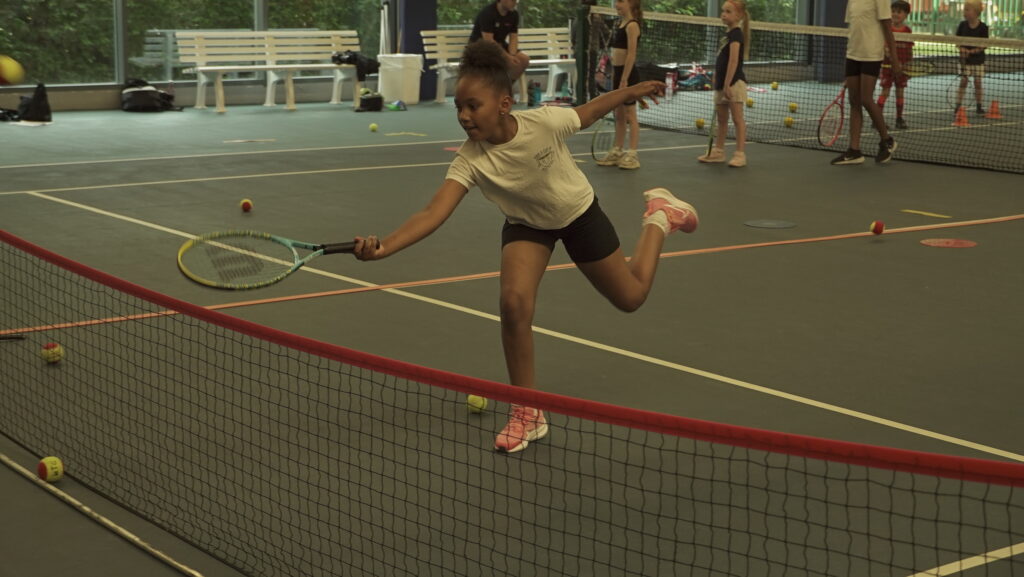Top 5 Tennis Tips for Junior Players!
Tennis is a sport that demands not only physical skill but also mental fortitude and strategy. Whether your child is just starting out or has already shown potential, the following five tips can help build a solid foundation and elevate their performance on the court:
Ready to get your kids active? Click ‘Our Venues’ to sign up today!
1. Focus on Footwork: The Foundation of Every Shot
Footwork is arguably the most essential aspect of a tennis player’s game, especially for juniors.
No matter how strong or accurate a player’s strokes are, poor footwork can cause them to miss shots or tire out quickly.
Incorporating drills that promote lateral movement, quick pivots, and directional changes can help refine footwork.

2. Practice Consistent Serves: Start Strong, Finish Strong
The serve is one of the most important shots in tennis, and a consistent, reliable serve can be a game-changer.
When working on serves, it’s important to focus on technique, form, and repetition. Ensuring proper grip, stance, and ball toss will help players achieve consistency.
A well-placed first serve is often more effective than a fast, inaccurate one, and this is where consistency comes into play.
3. Build Mental Resilience: The Power of a Positive Mindset
While physical skills are crucial to success in tennis, mental resilience is just as important—if not more so. Tennis is a sport that demands mental toughness, as players often face long, intense matches where they must stay focused, bounce back from mistakes, and push through challenges.
For junior players, building mental resilience starts with teaching them how to stay positive after losing a point or making an error.
Encourage them to maintain a calm demeanour, even when things aren’t going their way. Help them understand that mistakes are part of the game and that each point is a fresh opportunity to succeed.
A great way to build mental strength is through mindfulness and relaxation techniques that help players stay focused during matches.
Mental resilience is about teaching young players to handle the highs and lows of the game and to keep pushing forward, no matter the score.
4. Watch and Learn from the Pros: Inspiration from the Best
One of the best ways for junior players to improve their game is by watching professional tennis players in action. Whether it’s a major tournament like Wimbledon, watching elite players can provide valuable insights into the strategies, techniques, and mindset required to excel at the highest levels of the sport.
Encourage your child to observe professional matches and pay attention to the details—how pros position themselves on the court, how they execute different shots, and how they handle the pressure of big points. Discuss these observations with your child and analyse the techniques used by top players.
Additionally, many professional players have social media accounts, training videos, and interviews where they share tips and insights into their training routines. These resources can be invaluable for young players looking to learn and improve.
5. Play Regularly in Tournaments: Test Skills in Competitive Settings
While practicing at the local courts is essential, there’s no substitute for real competition.
Junior players who regularly participate in tournaments gain the experience needed to handle the intensity and pressure of match play.
Competing in tournaments helps players apply the skills they’ve been working on in practice while learning to adapt to different opponents, conditions, and strategies.
Participating in tournaments can also help your child build their confidence and foster a sense of accomplishment as they see their improvements reflected in match results. Plus, regular competition offers valuable lessons in sportsmanship and teamwork.

Our mission is to inspire kids to develop their skills, build confidence, and foster a love for the game.
